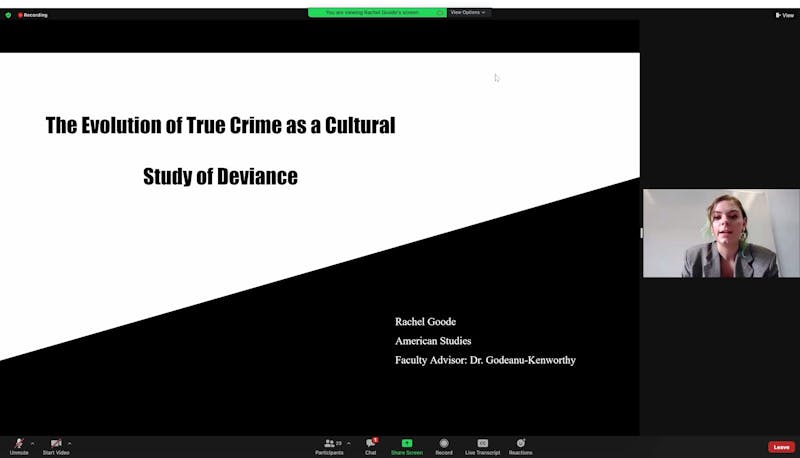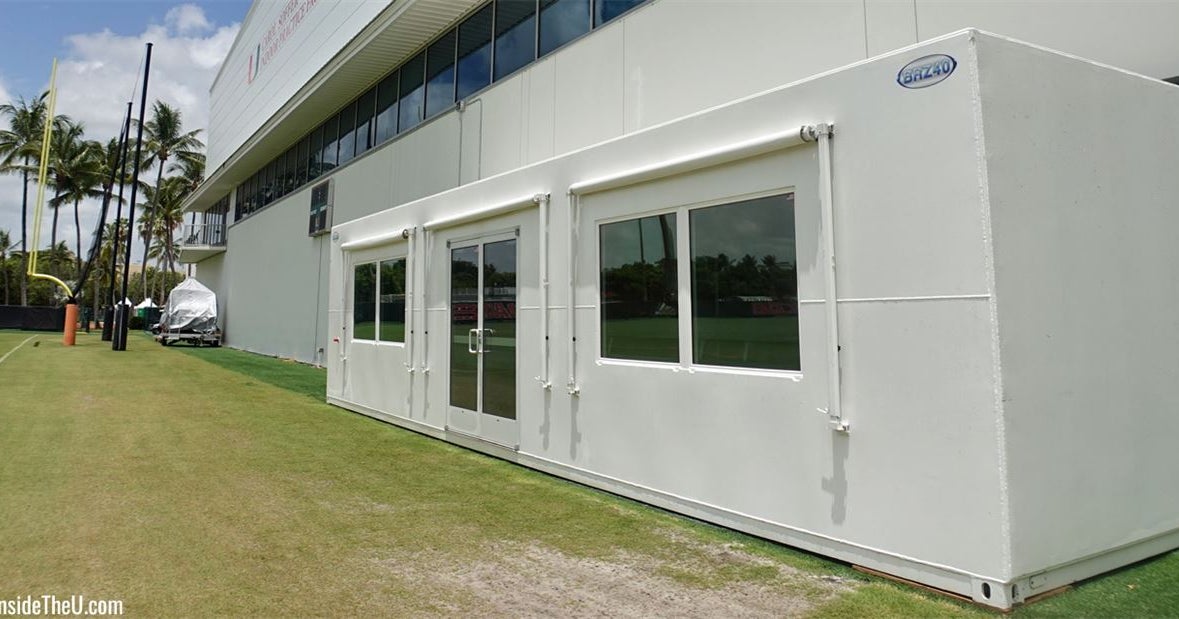Miami’s research forum draws audience of over 400 people
She stares at her laptop at 40 people who stare back, waiting for her to say something.
She breathes deeply and opens her presentation. She reminds herself that she’s been working on this project all semester; she has no reason to worry.
She unmutes herself.
“Hi, everyone,” she says. “My name is Rachel Goode, and I’ll be presenting ‘The Evolution of True Crime as a Cultural Study of Deviance.’”
Goode was one of nearly 400 people who attended Miami University’s virtual 2022 Undergraduate Research Forum on Wednesday, April 20. The event was held over 21 Zoom sessions and coincided with the Council on Undergraduate Research’s Undergraduate Research Week.
In a letter about this year’s forum, Miami’s President Greg Crawford wrote that the event demonstrates Miami’s model for student scholarship.
“For 28 years, this forum has highlighted our faculty and students using research to extend the Miami University classroom education into laboratories, fieldwork, and into our surrounding communities,” Crawford wrote. “Through analyzing data, designing studies to advance scholarship, and presenting results, Miami students demonstrate skills that are essential to success in today’s global and interconnected world.”
Throughout the day, students ranging from first-years to seniors presented 231 individual and group research projects that ranged in topics from the dark matter problem to war in German cinema.
The sessions were moderated by 32 volunteers, including university professors. An extra session, added this year, featured a panel discussion about diversity, equity and inclusion within undergraduate research.
Goode, a sophomore majoring in American studies and entrepreneurship, focused her project on the white narratives of true crime. The independent study used Netflix’s “Extremely Wicked, Shockingly Evil, and Vile” as an example of true crime’s lighter portrayal of white criminals.
Goode enjoyed engaging with a topic of her choosing, rather than one assigned to her in a class.
“When you pick your own research topic, you care more about it,” Goode said. “Researching helps you understand the world around you in a conscious way instead of just consuming and taking in opinions of other people or corporations of news media.”
Enjoy what you’re reading?
Signup for our newsletter
Ashley Hoegler, a senior majoring in public health and Spanish, researched the food insecurity obesity paradox, which she found working for a food pantry during an immersion experience for her global health studies minor.
Hoegler said her project helped expand her knowledge of what was being taught in her classes.
“Going into the community and actually finding things happening in real life and using that to base my research on, it was eye-opening to see these things are happening,” Hoegler said. “They’re close to home, and it’s very real, and it’s not just concepts in a classroom.”
To Hoegler, the appeal of the project was that she could take it in her own direction.
“I was able to go out and find something that interested me and that I felt was important,” Hoegler said. “Although this was for my minor, it was very loosely-structured … so I was able to take reign of my project a lot more than you get to do in a classroom.”
However, Goode, a self-proclaimed procrastinator, said the freedom of her project made it difficult at times to focus.
“It’s definitely hard when you don’t have guidelines, but it’s a good learning experience,” Goode said. “You’ll learn how your brain works best and the timeline of how you should get things done in your own process.”
Oana Godeanu-Kenworthy, an associate professor in American studies, helped advise students with their research projects. This was her first year moderating a session of student presentations.
Godeanu-Kenworthy said the research process teaches students many skills that can help with their futures.
“The most valuable thing is the experience of having done it,” Godeanu-Kenworthy said. “The experience of knowing what to expect when you give a public presentation, the experience of knowing how to organize your own work, how to research or how to pursue a research goal.”
Godeanu-Kenworthy added that students will be able to use this experience when pursuing their paths after college.
“Having participated in one of these undergraduate research forums is a badge of distinction for students,” Godeanu-Kenworthy said. “It’s really helpful in helping them hone their skills that they will take with them throughout life.”
Hoegler said the act of presenting the research, rather than just submitting it, can help students improve their knowledge on the topic.
“Learning how to present material to a group that might not be super familiar with everything you’re talking about … in a way that anyone who’s watching can understand is also really good,” Hoegler said. “In the real world, not everyone knows the same things you do and has the same background knowledge.”



